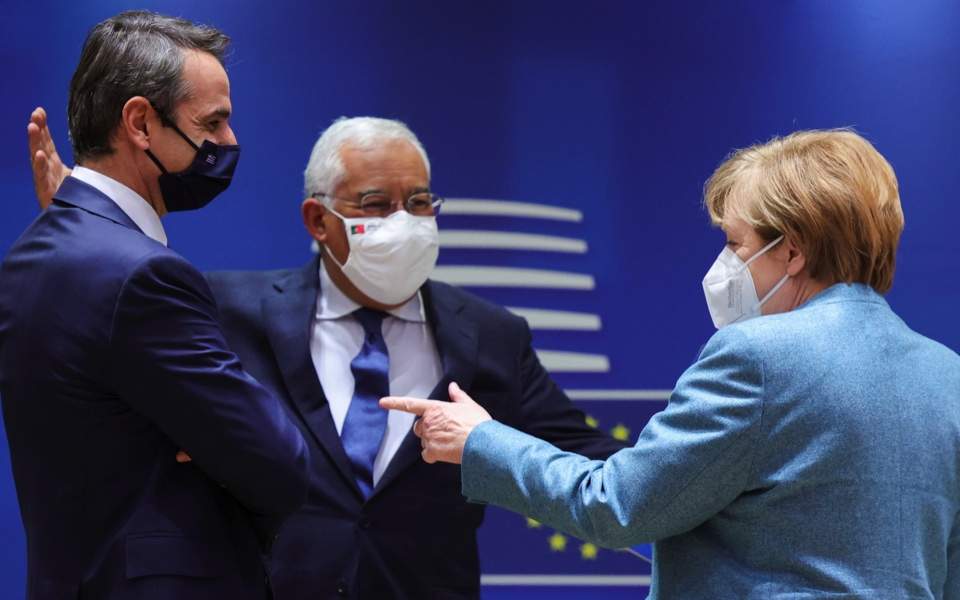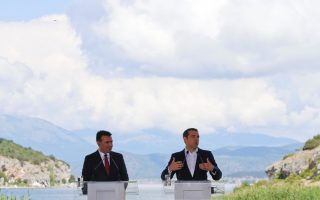Greek-German relations: Necessary to move forward

It goes without saying that Greek foreign policy has made significant steps in the last few years. From a hesitant manifestation of crude convictions about the Manichean evolution of international politics – i.e. right vs wrong – nowadays, Athens has achieved strong relations with France, Egypt, Israel and the United Arab Emirates. The newly established strong ties with the UAE especially fully shows that a new wind of change is blowing in the corridors of the Ministry of Foreign Affairs. This is something that comes as no surprise to those who know Kyriakos Mitsotakis’ fresh approach in the international relations of the 21st century, and also Nikos Dendias’ ability to exit his zone of comfort as a prominent lawyer and wear the hat of a specialist of international politics. Indeed, Athens has taken many steps forward and away from the gloomy days of “blessed passivity,” when doing nothing was the best thing for the gray suits at 1 Vassilisis Sofia Avenue.
Nevertheless, some things never change, especially when this relates to Greek-German relations, which still carry the gray aura of 2010-15. Evidently, since this last summer, many academics, analysts and lately some politicians have targeted Berlin and Angela Merkel in particular for its allegedly pro-Turkish approach. I think this view is hyperbolic, yet it is not my intention to challenge it.
The last time that Greece decided to collide with Germany, things did not turn out well for Athens. This does not mean that the Greek side must not stand its ground, but we mustn’t forget that the last time that anti-German rhetoric was rising above the Athenian concrete jungle it was Alexis Tsipras in Maximos Mansion and Yanis Varoufakis in the Economy Ministry. We all remember the results that those two brought upon us our children and grandchildren.
Neither am I suggesting that Berlin holds a fair and square stance toward Greece in the Aegean, while Turkey is testing the patience of the Greek government hard, and the unity of the southeastern flank of NATO too. However, let us be frank with ourselves. The European economy is about to face a new tsunami from the consequences of the global crisis that the Covid-19 pandemic has generated in the foundations of the free market economy around the world. Those in Athens who were expecting Germany and other European states to impose sanctions on Turkey – in other words, to close the door of the vast Turkish market to their exports – either live in a parallel universe or have yet to understand that the responsibility of a government is primarily to enhance the well-being of its citizens.
Germany is not our enemy, and, most importantly, Germany must not be offered to Turkey because a team of Greek academics and politicians decided to play the impertinent blame game to satisfy their ego or their voters, while neglecting the enhancement of the nation’s national interest. Besides, we have to understand that while there are many opinion-makers and politicians in Germany who feel closer to Turkey, there are others who feel closer to Greece. Our aim must be to win the hearts and minds of many more in Germany, informing the public opinion of the state what the situation in the Aegean Sea is like because of Turkish revisionism. To do that, we have to invest in public diplomacy and instruct our diplomats to exit their ivory towers and promote our national stance. How many heads of the Greek diplomatic missions around the world have Twitter accounts, the primary tool for public diplomacy promotion nowadays? Fewer than their Turkish counterparts. How many TV shows do they get invited to to promote Greece? The questions are purely rhetorical and the answers are quite disappointing.
Last but not least, it is crucial to build a new kind of honest and sincere relations with Germany. History, distant or recent, must not determine the way that Greece will move on the international chessboard in the years to come and we must not allow subjective or populist approaches to affect our collective judgment. In this process we need as many as possible by our side. And if they are not by our side now, we can always win them over. Diplomacy is a high art of promotion and alluring, and it is time that was learned and used for our own benefit. At the same time, we also have to be pragmatic and not close any doors around us. Attacking Germany verbally does not mean we are promoting our national goals, neither are we finding new ways to strengthen our voice in the international arena. On the contrary, we are offering every good excuse to those in Germany who argue in favor of maintaining a close relation with Turkey instead. And this must change.
Spyros Litsas is a professor of international relations theory at the University of Macedonia.





